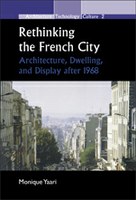Faculty Publications
Creolization, Hybridity and Archipelagic Thinking: Interrogating Inscriptions of Postcolonial Agency
Adlai Murdoch
"Creolization, Hybridity and Archipelagic Thinking: Interrogating Inscriptions of Postcolonial Agency.” In the Cambridge Journal of Postcolonial Literary Inquiry, vol.10., issue 1, January 2023.
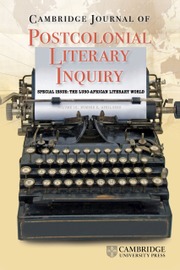
French predicate anaphora, comparatives, and ellipsis.
Marc Authier
French predicate anaphora, comparatives, and ellipsis. Probus 2023; aop. https://doi.org/10.1515/probus-2022-0017 (Published online February 13, 2023).

Decolonizing 1968: Transnational Student Activism in Tunis, Paris, and Dakar
Burleigh Hendrickson
Hendrickson, Burleigh. Decolonizing 1968: Transnational Student Activism in Tunis, Paris, and Dakar. Ithaca, NY: Cornell University Press, 2022.
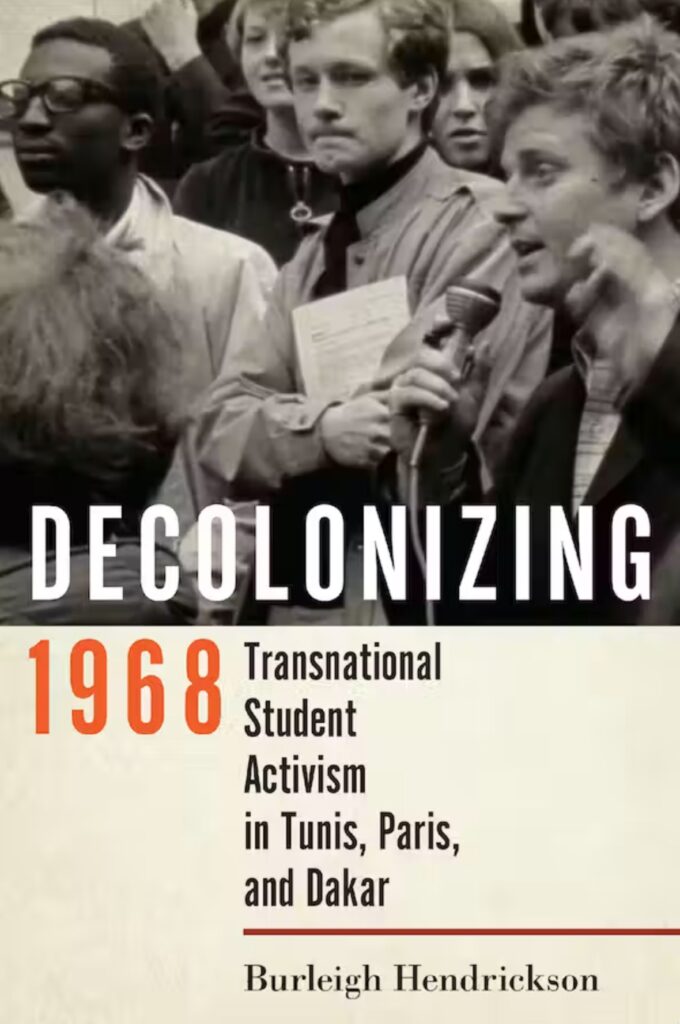
Undesirable: Passionate Mobility and Women’s Defiance of French Colonial Policing, 1919–1952
Jennifer Anne Boittin
2022
Archival research into policing and surveillance of migrant women illuminates pressing contemporary issues.
Examining little-known policing archives in France, Senegal, and Cambodia, Jennifer Anne Boittin unearths the stories of hundreds of women labeled “undesirable” by the French colonial police and society in the early twentieth century. These “undesirables” were often women traveling alone, women who were poor or ill, women of color, or women whose intimate lives were deemed unruly. To refute the label and be able to move freely, they spoke out or wrote impassioned letters: some emphasized their “undesirable” qualities to suggest that they needed the care and protection of the state to support their movements, while others used the empire’s own laws around Frenchness and mobility to challenge state or societal interference. Tacking between advocacy and supplication, these women summoned intimate details to move beyond, contest, or confound surveillance efforts, bringing to life a practice that Boittin terms “passionate mobility.” In considering how ordinary women pursued autonomy, security, companionship, or simply a better existence in the face of surveillance and control, Undesirable illuminates pressing contemporary issues of migration and violence.
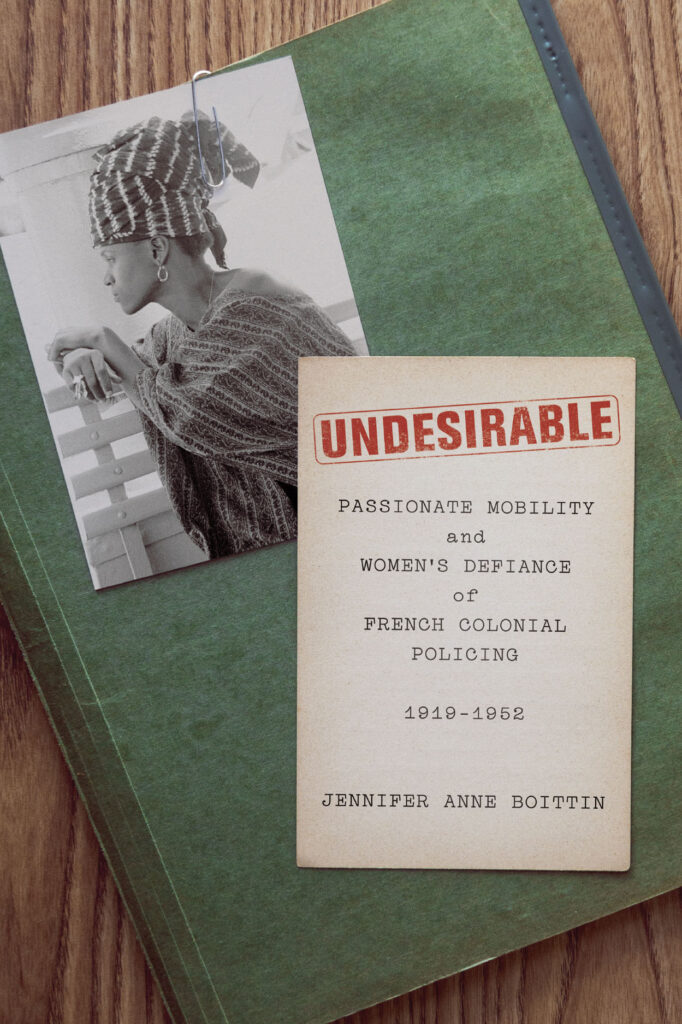
La poétique de la cale, variations sur le bateau négrier
Fabienne Kanor
La poétique de la cale, variations sur le bateau négrier, Fall 2022, Rivages.
Entitled La poétique de la cale: variations sur le bateau négrier, my book examines the way the experience of the Middle Passage is represented in contemporary literary, cinematographic and artistic productions of Francophone Africa, the French West Indies and the United States. The artists I focus on in this monograph all work on the Transatlantic Slave Trade and its consequences. Their works are of great interest for they clearly express a need for remembrance, but also for healing and reparation. As James Baldwin stated in “The White Man’s Guilt” (Collected essays, 1965), we need to embrace this history because it is “literally present in all that we do.” However slow governments throughout the Atlantic world are in recognizing the ongoing economic, demographic, social, political and even psychiatric impact of the Slave Trade (in France, for instance, the law recognizing the Slave Trade as a “crime against humanity” was only voted in 2001), these artists, whose voices my book excavates, allow us to redraw the global map of the Slave Trade. Based on an interdisciplinary approach drawing on transnational literary, cinematographic and artistic works, archives, historical documents and a wide theoretical corpus ranging from Edouard Glissant and Gaston Bachelard to Paul Gilroy and Joy DeGruy, La poétique de la cale helps reframe our global understanding of a “past not passed” and our comprehension of contemporary traumas.

INDIAN OCEAN STUDIES, AFRICAN-ASIAN AFFINITIES
Emmanuel Bruno Jean-François and Neelima Jeychandran, eds. Indian Ocean Studies, African-Asian Affinities. Spec. issue of Verge. Studies in Global Asias 8.1 (2022)
This special issue investigates how creative works and aesthetic expressions represent African-Asian affinities in several parts of the Indian Ocean world. Contributions featured in this issue engage with a wide array of objects and practices—including music and dance, poetry and novels, paintings and architectural designs—and consider how they simultaneously capture and shape the imaginary of the Indian Ocean as a space that generates complex definitions of transcultural, translocal, and transnational contacts.
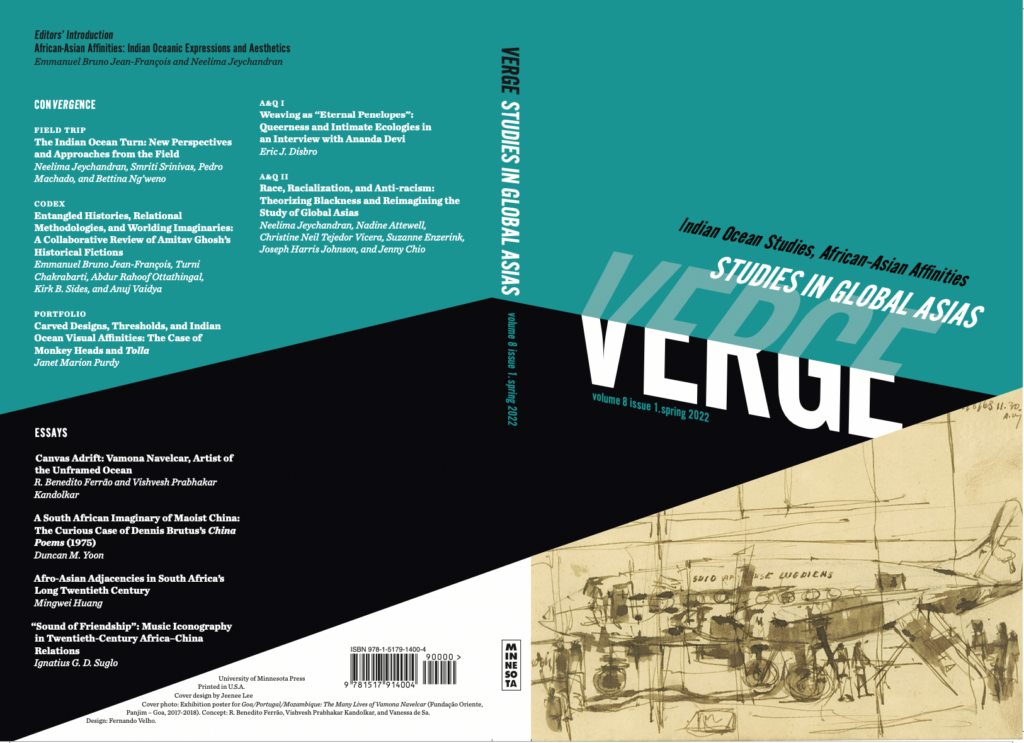
Queering the Enlightenment: Kinship and gender in eighteenth-century French Literature
Rutler, Tracy. Queering the Enlightenment: Kinship and gender in eighteenth-century French literature. Liverpool: Liverpool University Press, 2021.
Liminal periods in politics often serve as points in time when traditional methods and principles organizing society are disrupted. These periods of interregnum may not always result in complete social upheaval, but they do open the space to imagine social and political change in diverse forms. In Queering the Enlightenment: kinship and gender in the literature of eighteenth-century France, Tracy Rutler uncovers how numerous canonical authors of the 1730s and 40s were imagining radically different ways of organizing the masses during the early years of Louis XV’s reign. Through studies of the literature of Antoine François Prévost, Claude Crébillon, Pierre de Marivaux, and Françoise de Graffigny among others, Rutler demonstrates how the heteronormative bourgeois family’s rise to dominance in late-eighteenth-century France had long been contested within the fictional worlds of many French authors. The utopian impulses guiding the fiction studied in this book distinguish these authors as some of the most brilliant political theorists of the day. Enlightenment, for these authors, means reorienting one’s relation to power by reorganizing their most intimate relations. Using a practice of reading queerly, Rutler shows how these works illuminate the unparalleled potential of queer forms of kinship to dismantle the patriarchy and help us imagine what might eventually take its place.
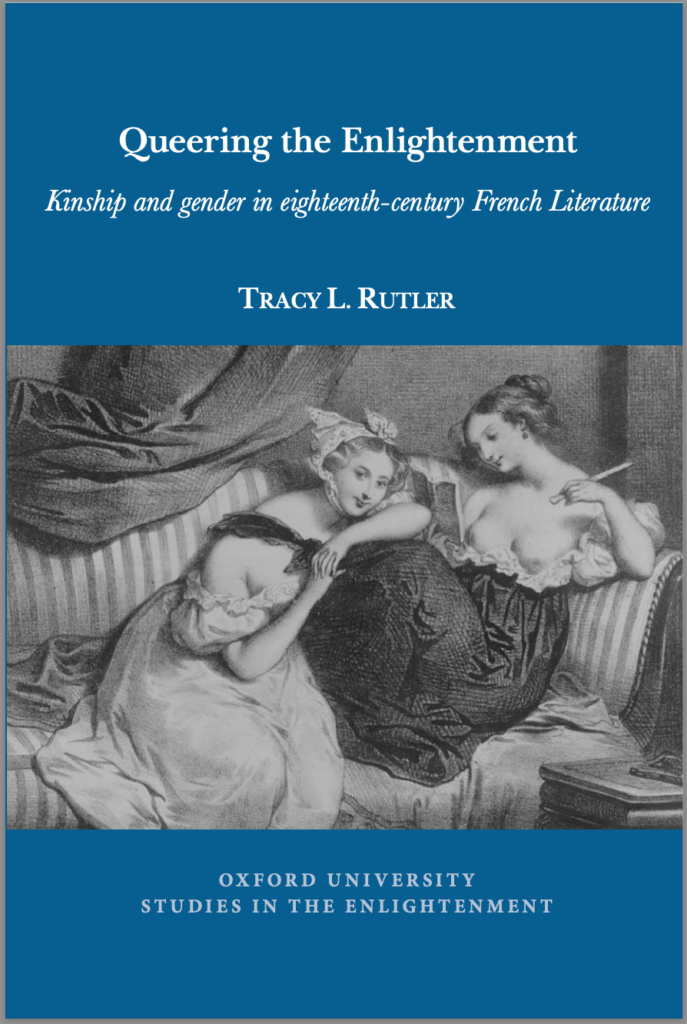
THE MINOR IN QUESTION
Maya Boutaghou and Emmanuel Bruno Jean-François, eds. The Minor in Question. Spec. issue of Cultural Dynamics. Insurgent Scholarship on Culture, Politics, and Power 32.1-2 (2020)
https://journals.sagepub.com/toc/cdya/32/1-2
Dedicated to “the minor in question,” this issue of Cultural Dynamics investigates the renewed potential and conceptual valence of the “minor,” both as a critical category and a methodological framework, for thinking through questions of positionality and performance, of agency and ways of being, for marginal subjects whose creative and expressive cultures circumvent dominant influences and hierarchical systems of power. Grounded in the work of comparative literature and theory, the volume gathers contributions by scholars from a variety of disciplines in the Humanities, whose works lie at the intersection of various linguistic expressions, geographical arrangements, cultural formations, and so-called minor orientations within established area studies programs. Considering how aesthetic forms convey the “minor” as a cultural entity, they approach it both as a dynamic category and a fluid positionality, not only to uncover the diverse forms that violence, domination, and inequalities take across multiple contexts, but also to challenge static representations of minor subjects and communities as passive, isolated, and/or disempowered.
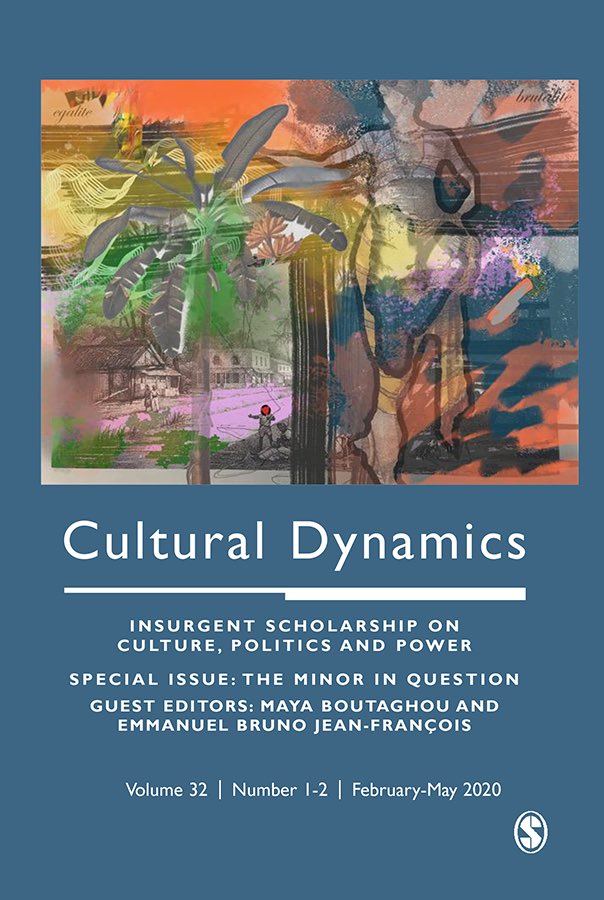
Terminal F
Fabienne Kanor
Short story
“Terminal F”. H24, 24h de la vie d’une femme, Paris: Actes Sud, Fall 2021.

The Flesh of History / Le corps de l’histoire
Fabienne Kanor
37’ Film with the partnership with Le Musée d’Aquitaine, The Foundation for Remembrance of Slavery, and Marian Trygve Freed Early Career Professorship.
In a 16tth Century disused convent, a woman remembers the chapters of her colonial history. Stories of oppression and forced uprooting, stories of discrimination and non-integration… I am this storyteller with long memory. I am this Caribbean woman made in France. I am this direct descendant of anonymous Africans put to slavery. I am a survivor of the Middle Passage. I am an eyewitness of violence against black people.

The Struggle of Non-Sovereign Caribbean Territories
Adlai Murdoch
New Brunswick: Rutgers University Press, 2021
The Struggle of Non-Sovereign Caribbean Territories is an essay collection made up of two sections; in the first, a group of anglophone and francophone scholars examines the roots, effects and implications of the major social upheaval that shook Guadeloupe, Martinique, French Guiana, and Réunion in February and March of 2009. They clearly demonstrate the critical role played by community activism, art and media in combatting politico-economic policies that generate (un)employment, labor exploitation, and unattended health risks, all made secondary to the supremacy of profit. In the second section, additional scholars provide in-depth analyses of the ways in which a neoliberal insistence on capital accumulation and centralization have instantiated broad hierarchies of market-driven profit and economic exploitation upon a range of populations and territories across the wider non-sovereign and nominally sovereign Caribbean from Haiti to the Dutch Antilles to Puerto Rico, reflecting and reinforcing the racialized patterns of socioeconomic exclusion and privatization long imposed by France on its former colonial territories.
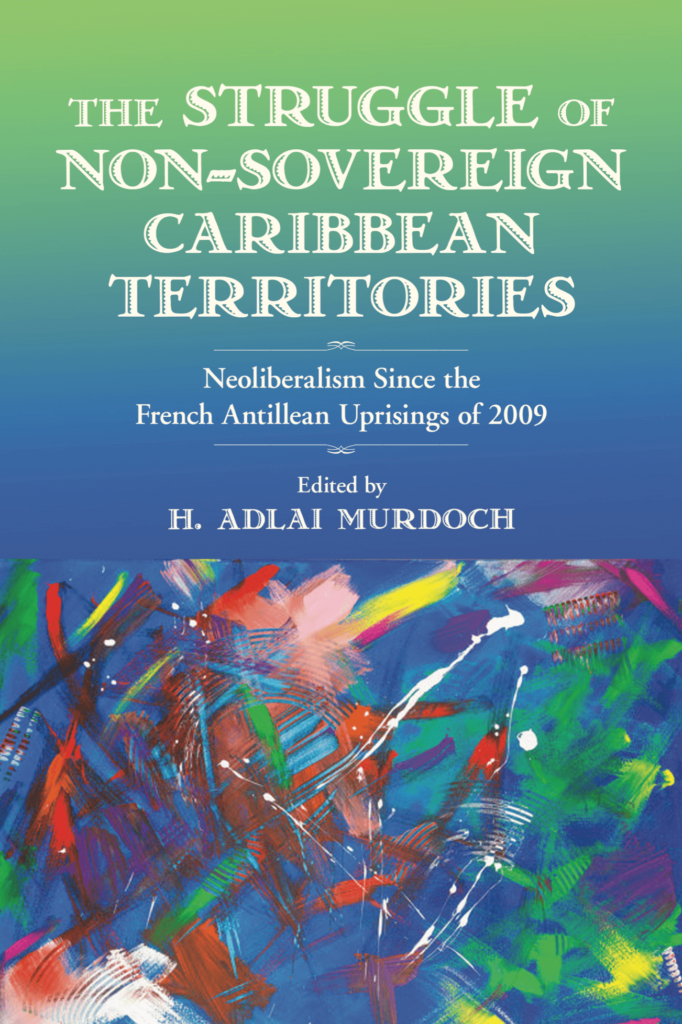
The Postcolonial Aesthetics of René Ménil
Adlai Murdoch
C.L.R. James Journal
Co-Editor with Justin Izzo, Special Issue, "The Postcolonial Aesthetics of René Ménil," vol. 26, nos. 1-2, Fall 2020.

Periphery and Intimacy in Anti-Imperial Culture and Politics
Hendrickson, Burleigh. “Periphery and Intimacy in Anti-Imperial Culture and Politics.” French Politics, Culture & Society 38:2 (2020): 105-125.
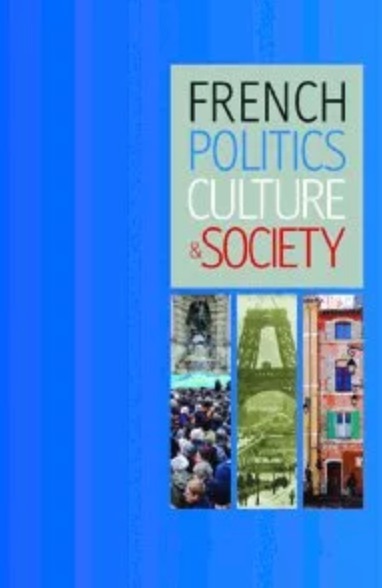
Écrits de femmes et livres d’instruction au XIXème siècle
Bénédicte Monicat
Paris: Garnier, 2019
Cette étude est la première à considérer en tant qu'ensemble littéraire les écrits consacrés par les femmes à la transmission des savoirs au XIXe siècle. Négligés par l'historiographie littéraire, ils constituent un phénomène important tant sur le plan tant culturel que sur le plan théorique. Témoignant des engagements intellectuels et professionnels des femmes, ils révèlent la codification des genres (littéraires et sexués) qui les régissent mais aussi les phénomènes de débordements qui en signalent l'artifice. Les points d'ancrage de cet ouvrage (critique littéraire, études historiques, réflexion théorique) rendent compte d'une production écrite où peut se constituer une pensée des genres autrement informée.

MAPPING FRANCOPHONE POSTCOLONIAL THEORIES
Maya Boutaghou and Emmanuel Bruno Jean-François, eds. Mapping Francophone Postcolonial Theories. Spec. issue of Contemporary French & Francophone Studies: Sites 22.2 (2018)
https://sites.uconn.edu/volume-22-issue-2/
This special issue of Contemporary French & Francophone Studies examines how the literary, visual, cinematic, and linguistic engagement of border-crossing writers, artists, and filmmakers from Francophone contexts creatively re-imagines our world. By acknowledging the evolution, paradoxes, and challenges of Francophone studies, the volume discusses the paradigm shift that redirects the focus from vertical ties subjugating Francophone regions to France, to more horizontal links and heterogeneous spaces of mediation, that embody the unscripted and multidirectional creativity of transnational sites of production. By examining how “invisible” relations, unexpected circulations, and minoritized/marginalized expressions act as strong transnational components of a “worlding” or “world-forming” endeavor, we approach francophonie as a space of diversity, hybridity, and creolization that generates new meanings and phenomenologies specifically visible in artistic performances and literary practices.
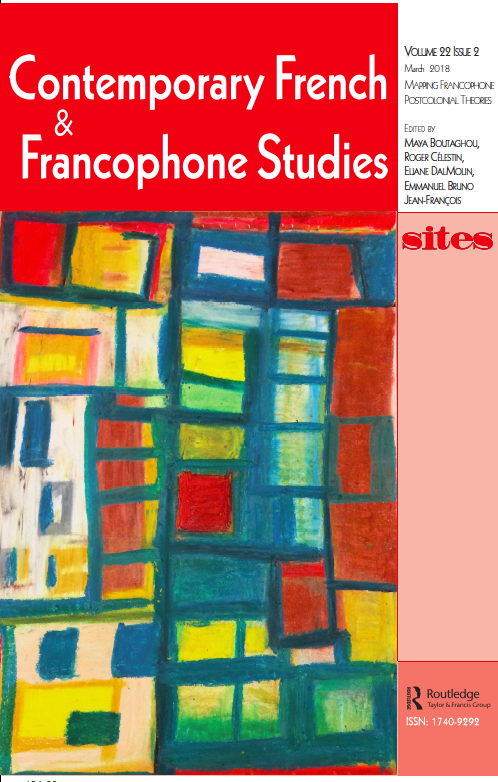
Poétiques de la violence et récits francophones contemporains
Jean-François, Emmanuel (Bruno). Poétiques de la violence et récits francophones contemporains. Amsterdam: Brill, 2016.
In this comparative interdisciplinary study, Emmanuel Bruno Jean-François examines what constitutes the counter-discourse that emerging Francophone literatures articulate to think through the dynamics of violence in our contemporary world in view of the proliferation of artistic, iconographic and media representations of violence effecting our perception of our environment. In the context of the trivialization of violence, and the crisis of representation that this phenomenon produces, he underscores both the aesthetic and ethical engagement of writers from a wide range of geographical regions, by bringing together literary texts that develop a new poetics of violence, characterized by a break in the aesthetic values usually associated with the ‘unrepresentable.’ By exploring the stylistic, historical and thematic contours of these Francophone and postcolonial texts, his study invites us to better understand the thematic, aesthetic and ethic issues they raise.
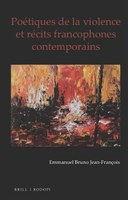
From Dada to Infra-noir: Dada, Surrealism, and Romania
Yaari, Monique, and Timothy Shipe, eds. From Dada to Infra-noir: Dada, Surrealism, and Romania. Spec. issue of Dada/Surrealism 20 (2015).
http://ir.uiowa.edu/dadasur/vol20/iss1/
This is the first essay collection in English on the subject of Dada and surrealism in literature and the visual arts within Romania and in the largely francophone diaspora. It includes eighteen articles by scholars and critics from North America, Europe, and Israel, as well as a selection of primary documents newly translated into English and a substantial bibliography. Monique Yaari’s own article concerns the poet and artist Paul Păun/Paon.
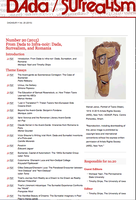
Les Misérables and Its Afterlives: Between Page, Stage, and Screen
Grossman, Kathryn, and Bradley Stephens. Les Misérables and Its Afterlives: Between Page, Stage, and Screen. London: Ashgate, 2015.
Exploring the enduring popularity of Victor Hugo’s Les Misérables, this collection offers analysis of both the novel itself and its adaptations. In spite of a mixed response from critics, Les Misérables instantly became a global bestseller. Since its successful publication over 150 years ago, it has traveled across different countries, cultures, and media, giving rise to more than 60 international film and television variations, numerous radio dramatizations, animated versions, comics, and stage plays. Most famously, it has inspired the world's longest running musical, which itself has generated a wealth of fan-made and online content. Whatever its form, Hugo’s tale of social injustice and personal redemption continues to permeate the popular imagination. This volume draws together essays from across a variety of fields, combining readings of Les Misérables with reflections on some of its multimedia afterlives, including musical theater and film from the silent period to today's digital platforms.

“Infra-noir” un et multiple : un groupe surréaliste entre Bucarest et Paris
Yaari, Monique, ed. "Infra-noir" un et multiple : un groupe surréaliste entre Bucarest et Paris, 1945-1947. Oxford: Peter Lang, 2014.
Bucarest - Paris, 1945-1947. Pendant cet intervalle trouble où la dictature communiste ne s’est pas encore imposée dans la capitale roumaine sur les décombres du fascisme, un groupe surréaliste singulier émerge de la clandestinité avec un enchaînement fébrile de publications et d’expositions. Se pensant en dialogue avec Paris mais affirmant hautement sa différence, il arbore l’« Infra-noir » comme signe d’une identité codée.
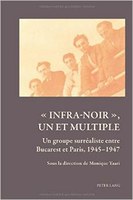
Strengthening the PRO Hypothesis
Reed, Lisa A. Strengthening the PRO Hypothesis. Boston: De Gruyter, 2014.
Generative theory has long sought to analyze Control structures, questioning whether the complement clause contains a syntactically projected thematic subject, whether such an argument undergoes displacement and, if so, where and why, and what role semantics may play. This book follows this tradition, critically examining paradigms erroneously assumed to favor PRO analyses over Movement and implicit argument accounts and offering novel data amenable to analysis only within a PRO approach – although one radically different from its predecessors in both form and interpretation.
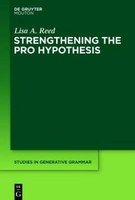
Creolizing the Metropole: Migrant Caribbean Identities in Literature and Film
H. Adlai Murdoch
Indianapolis: Indiana University Press, 2012

The New Bibliopolis French Book Collectors and the Culture of Print, 1880-1914
Silverman, Willa Z. The New Bibliopolis French Book Collectors and the Culture of Print, 1880-1914. Toronto [Ont.: U of Toronto, 2008.
Winner of the 2008 Aldo and Jeanne Scaglione Prize in French and Francophone Studies from the Modern Language Association.
The late-nineteenth century in Europe was a period of profound political, social, and technological change. One result of these changes was the rise in France of an upper-bourgeois bohemian class. Many of its members stimulated interest in unique forms of artistic expression such as illustrated books. On account of their influence, an atmosphere of intense bibliophilic activity came to define French culture at the turn of the century. The New Bibliopolis explores the role of amateurs in promoting the book arts in France during this period.
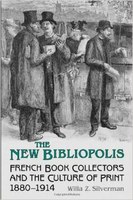
Epistémè baroque: le mot et la chose
Vuillemin, Jean-Claude. Epistémè baroque: le mot et la chose. Paris: Hermann, coll. "Savoirs Lettres", 2013
Consubstantiel à l’émergence de la science moderne et caractéristique du pli d’une civilisation en crise, l'herméneutique du Baroque que propose J.-Cl. Vuillemin à partir d’une lecture foucaldienne de la première modernité relève moins de l’esthétique que du philosophique. Dans cette perspective, l'adage Sapere aude, i.e. “Osez savoir”, s'avère moins emblématique des Lumières, comme l’affirme Kant corroboré par Foucault, qu’il constitue plus légitimement la devise de l’épistémè baroque dont cet ouvrage propose une nouvelle généalogie
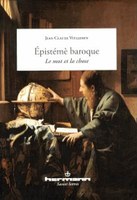
Parlons Affaires!: Initiation Au Français Economique Et Commercial
Berg, Robert J., and Heather McCoy. Parlons Affaires!: Initiation Au Français Economique Et Commercial. Revised/Expanded ed, 2013.
In-depth and adaptable, PARLONS AFFAIRES! is a comprehensive resource for the Business French course. Through coverage of traditional business topics, as well as career practices, communication skills, and cultural concepts particular to French businesses, students will acquire valuable vocabulary and insights that will improve their understanding of the French and Canadian business worlds.

Phase-Edge Features and the Syntax of Polarity Particles
Authier, J.-Marc. "Phase-Edge Features and the Syntax of Polarity Particles." Linguistic Inquiry: 345-89. 2013.
In this article, I argue that the phase edge in the C field shares features via Agree with an intermediate layer (FinP) and with a lower projection (ΣP), allowing it to determine the type of clause and its polarity. I adopt a feature-sharing relation of Agree that connects all of the polarity features present on heads (be they Σ, Fin, and, in some cases, VFoc) to a polarity feature in Force, the relevant phase-edge position for clausal typing. This explains, among other things, why embedded clauses containing a polarity feature can only satisfy the selectional properties of a particular class of (matrix) verbs.

The Later Novels of Victor Hugo: Variations on the Politics and Poetics of Transcendence
Grossman, Kathryn M. The Later Novels of Victor Hugo: Variations on the Politics and Poetics of Transcendence. Oxford: Oxford UP, 2012.
This study places the last three novels of Victor Hugo's maturity - Les Travailleurs de la mer(1866), L'Homme qui rit (1869), and Quatrevingt-Treize (1874) - within the context of his artistic development after the success of Les Miserables (1862). By situating these historical narratives in relation to each other, to all of Hugo's previous fiction, and to a number of poetic and critical works published in exile and in the initial years of the Third Republic, it illuminates the final structural and thematic shifts from a poetics of harmony to one of transcendence.
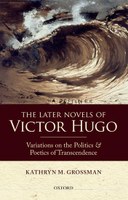
French Historical Studies: Intersections of Race and Gender in French History
Jennifer Anne Boittin and Tyler Stovall
In recent years scholars of France have devoted a great deal of time and effort to the study of what has been called French universalism, the
idea that the nation’s republican tradition, and to an important extent French culture in general, centers on certain values held to be applicable to all peoples. Explorations of this issue have emphasized not only the essential contours of this ideology but also its contradictions. How can adherence to a certain set of values simultaneously define both a specific national identity and the common experience of humanity? Among other things, Frenchness is a culturally expressed sense of belonging to a political state. Yet what does one make of those individuals and communities who live in France, even possess French citizenship, and yet are not regularly included in the concept of civilization—defined through education, language, culture, and morals—that normalizes acceptance? Moreover, if one focuses on ideas generated during a particular period (for France, especially the Enlightenment and the Revolution), do those values change over time, and how do concepts of national identity reflect those changes? Ultimately, what does it mean to be French, and to what extent does republican universalism exemplify or reify the essence of the nation?
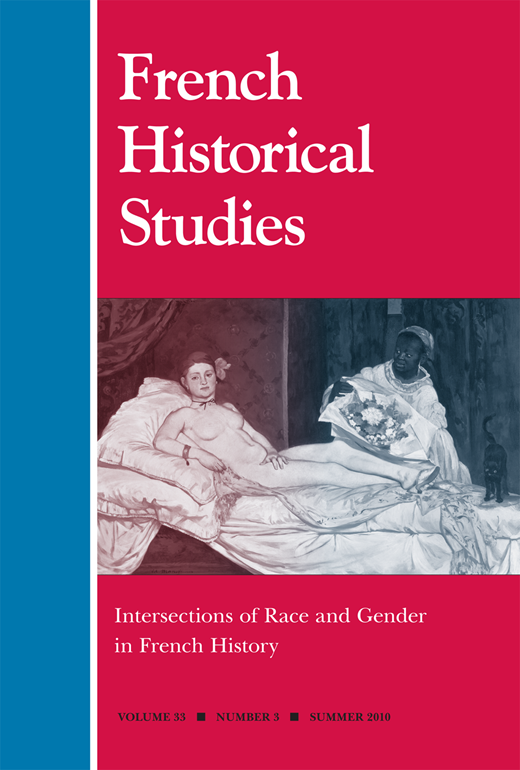
Colonial Metropolis the Urban Grounds of Anti-imperialism and Feminism in Interwar Paris
Boittin, Jennifer Anne. Colonial Metropolis the Urban Grounds of Anti-imperialism and Feminism in Interwar Paris. Lincoln: U of Nebraska, 2010.
This book maps the intellectual and physical locales that the disenfranchised residents of Paris frequented, revealing where their stories intersected and how the personal and local became political and transnational. With a focus on art, culture, and politics, this study reveals how both groups considered themselves inhabitants of a colonial metropolis and uncovers the strategies they used to colonize the city.
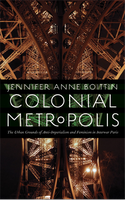
Rethinking the French City: Architecture, Dwelling, and Display after 1968
Yaari, Monique. Rethinking the French City: Architecture, Dwelling, and Display after 1968. Amsterdam: Rodopi, 2008
This book considers the post-68 French city as a prism through which to understand the contemporary world and France's specificity within it. The reader is invited to join in a series of exploratory strolls through texts, buildings, and neighborhoods, and thereby share in a process of discovery. Zeroing in on international architectural debates, a range of key Parisian exhibitions, and major urban design decisions in Paris, Montpellier, and Lille, Yaari unravels an often-acerbic French critique of both modern and postmodern positions on culture, technology, and the city.
